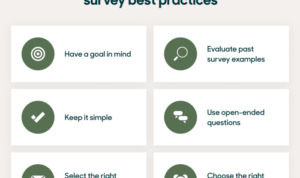Get ready to level up your business game with Customer Relationship Tips. From effective communication to building trust, we’ve got you covered with the latest strategies to boost your customer relationships.
Let’s dive deep into the world of customer relationship management and discover how these tips can take your business to the next level.
Introduction to Customer Relationship Tips

Building strong customer relationships is key in business. It’s all about creating a loyal customer base that keeps coming back for more. When customers feel valued and appreciated, they are more likely to become repeat buyers and even recommend your business to others. Positive customer relationships can have a huge impact on business growth, leading to increased sales, higher customer retention rates, and a positive brand reputation.
Companies Excelling in Customer Relationship Management
- Amazon: Known for its personalized recommendations and excellent customer service, Amazon has set the bar high for customer relationship management.
- Zappos: This online retailer is famous for its customer-centric approach, going above and beyond to ensure customer satisfaction.
- Apple: Apple’s focus on creating a seamless customer experience has helped them build a strong and loyal customer base over the years.
Effective Communication Strategies
Effective communication plays a crucial role in maintaining good customer relationships. It involves not only conveying information but also understanding and empathizing with customers. Here are some tips on how to communicate effectively with customers:
Clear and Empathetic Communication
- Listen actively to customers to understand their needs and concerns.
- Use simple and clear language to avoid misunderstandings.
- Show empathy by acknowledging and validating customer feelings.
- Ask clarifying questions to ensure mutual understanding.
Impact of Miscommunication
Miscommunication can have negative consequences on customer relationships. For example, if a customer feels misunderstood or unheard, they may become frustrated and seek services elsewhere. It is essential to address any miscommunication promptly to prevent further damage to the relationship.
Personalization Techniques: Customer Relationship Tips

Personalizing interactions with customers can lead to increased customer satisfaction, loyalty, and repeat business. By tailoring your approach to meet the individual needs and preferences of each customer, you can create a more meaningful and engaging experience that sets your business apart from competitors.
The Benefits of Personalization
- Improved customer satisfaction and loyalty
- Increased customer engagement and retention
- Higher conversion rates and sales
- Enhanced brand reputation and trust
Different Ways to Personalize Customer Experiences
- Use customer data to customize interactions
- Address customers by their name
- Recommend products or services based on past purchases
- Send personalized emails or messages
- Create loyalty programs tailored to individual preferences
Examples of Companies Successfully Implementing Personalization Strategies
- Amazon: Personalizes product recommendations based on browsing history and purchase behavior
- Spotify: Curates personalized playlists and music recommendations based on listening habits
- Netflix: Suggests movies and shows based on viewing history and preferences
- Starbucks: Offers personalized rewards and discounts through their loyalty program
Building Trust and Credibility
Building trust and credibility is crucial in customer relationships as it forms the foundation for loyalty and long-term partnerships. When customers trust a business, they are more likely to return for repeat purchases and recommend the business to others.
Tips to Build Trust with Customers
- Deliver on promises: Consistently meeting or exceeding customer expectations helps establish trust.
- Communicate openly: Transparency in communication builds credibility and fosters trust.
- Handle mistakes gracefully: Acknowledge errors, take responsibility, and make amends to maintain trust.
- Personalize interactions: Tailoring experiences to individual customers shows care and builds trust.
- Provide excellent customer service: Respond promptly, listen actively, and go above and beyond to show customers they are valued.
Impact of Trust and Credibility on Customer Loyalty
Building trust and credibility can significantly impact customer loyalty. When customers trust a business, they are more likely to become repeat customers, make larger purchases, and recommend the business to others. Trust also leads to increased customer satisfaction and positive word-of-mouth, which further strengthens the relationship between the business and its customers.
Handling Customer Feedback
Customer feedback is like gold, ya know? It’s super important for businesses to gather and respond to feedback from their customers. This helps them understand what’s working well and what needs improvement, ultimately leading to better products and services. Plus, it shows customers that their opinions matter, building stronger relationships and loyalty.
Significance of Gathering and Responding to Customer Feedback, Customer Relationship Tips
Collecting customer feedback ain’t just for show, it’s the real deal. Companies can use feedback to identify patterns, trends, and areas for improvement. By responding to feedback, they show customers that they’re listening and taking action to make things better. This builds trust and credibility, making customers feel valued and more likely to stick around.
Best Practices for Collecting and Acting on Customer Feedback
- Make it easy for customers to provide feedback through surveys, reviews, or direct communication channels.
- Act promptly on feedback received, showing customers that their input is valued and acted upon.
- Analyze feedback to identify common themes and prioritize areas for improvement based on customer needs and preferences.
- Communicate changes or improvements made based on feedback, showing customers the impact of their input.
Examples of Companies Using Customer Feedback to Improve Products or Services
- Amazon: Constantly reviews customer feedback to enhance product offerings and improve the overall shopping experience.
- Netflix: Utilizes customer ratings and feedback to personalize recommendations and enhance content selection for users.
- Apple: Listens to customer feedback to make updates and improvements to their devices and software, ensuring customer satisfaction.





